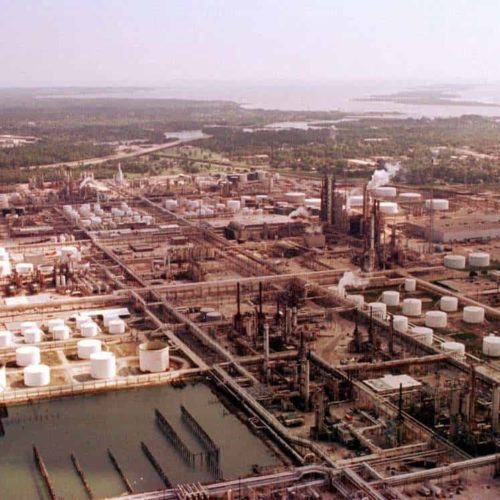Introduction
A new study adds weight to arguments that a shift to “green” chemistry and stricter regulation of toxic chemicals could revive the U.S. chemical industry, which has been shedding jobs rapidly. But the industry isn’t convinced, arguing that bad rules from Washington are costing jobs.
Excluding pharmaceuticals, the industry has cut more than 300,000 jobs since 1992, concludes the study, authored by two researchers at the University of Massachusetts, Amherst, and commissioned by the BlueGreen Alliance, a partnership oflabor unions and environmental groups.
Researchers James Heintz and Robert Pollin of the university’s Political Economy Research Institute predict that if trends continue, another 230,000 jobs will be lost by 2030. “These job losses are not inevitable,” Heintz and Pollin write. “New market opportunities demonstrate how to reverse negative employment trends and put people to work in the chemical industry in the United States.”
The study estimates, for example, that if 20 percent of production shifted from petrochemical-based plastics to “bio-based” plastics — made from corn or other natural materials —104,000 new jobs would be created “even if the output of the plastics sector remained unchanged.”
Heintz and Pollin argue that the U.S. chemical industry is being hindered by the weak Toxic Substances Control Act of 1976. Under the law, known as TSCA, the Environmental Protection Agency has limited ability to oversee the development and marketing of chemicals and must prove that products are harmful before regulating them, a nearly impossible task. Legislation introduced by Senate Democrats last month would reform TSCA, requiring the EPA to collect basic health and safety information on the 80,000-plus chemicals already on the market as well as new compounds.
The Amherst researchers say a more robust TSCA — contrary to industry claims — could create jobs rather than kill them by putting U.S. manufacturers on a par with their counterparts in Europe and Canada, where rules are stricter. It would “move the industry toward more innovative products,” Heintz said in an interview with iWatch News. “It would give [U.S. manufacturers] access to global markets and create new domestic markets as well.”
Heintz and Pollin cite data from the National Science Foundation showing that research and development spending in the U.S. chemical industry — again, excluding pharmaceuticals — amounts to only 1.5 percent of sales, far below the average for the manufacturing sector as a whole. “TSCA contributes to low R&D spending by reducing incentives for industry to innovate, since many of the existing chemicals grandfathered in under TSCA face fewer regulations,” the study says.
While the industry claims that new standards would damage competitiveness, “traditional chemical production looks more competitive than it actually is,” Heintz and Pollin write. “Even low-end estimates of the health costs of exposure to hazardous chemicals amount to billions of dollars.” And the chemical industry “has the largest pollution abatement costs of any manufacturing sector — an estimated $5.2 billion in 2005.”
In a statement to iWatch News, Scott Jensen, a spokesman for the chemical industry’s main trade association, the American Chemistry Council, said the study “fails to recognize that a driver for job losses in the U.S. chemical industry is poor regulatory decision-making in Washington. For example, domestic chemical companies could add thousands of jobs in the next few years as they boost U.S. investment to capitalize on lower production costs made possible by shale gas and ethane. These new investments could create an estimated 400,000 total American jobs. But it can only happen if policymakers avoid regulations that stifle the industry’s resurgence.”
Jensen said the council supports “the modernization of TSCA, but strongly disagree that creating a cumbersome and onerous regulatory system would lead to new chemistry innovations and jobs. The creation of new and better products must continue to be driven by the marketplace. We believe TSCA reform must ensure the safe use of chemicals without threatening the ability of U.S. industry to compete and innovate in a global marketplace.”
Read more in Environment
Environment
FDA screening of fish imports not catching antibiotics and drug residue
Environment
Some energy CEOs among highest paid U.S. corporate bosses
While politicians weigh subsidies and drilling, oil execs earn fat paychecks


Join the conversation
Show Comments